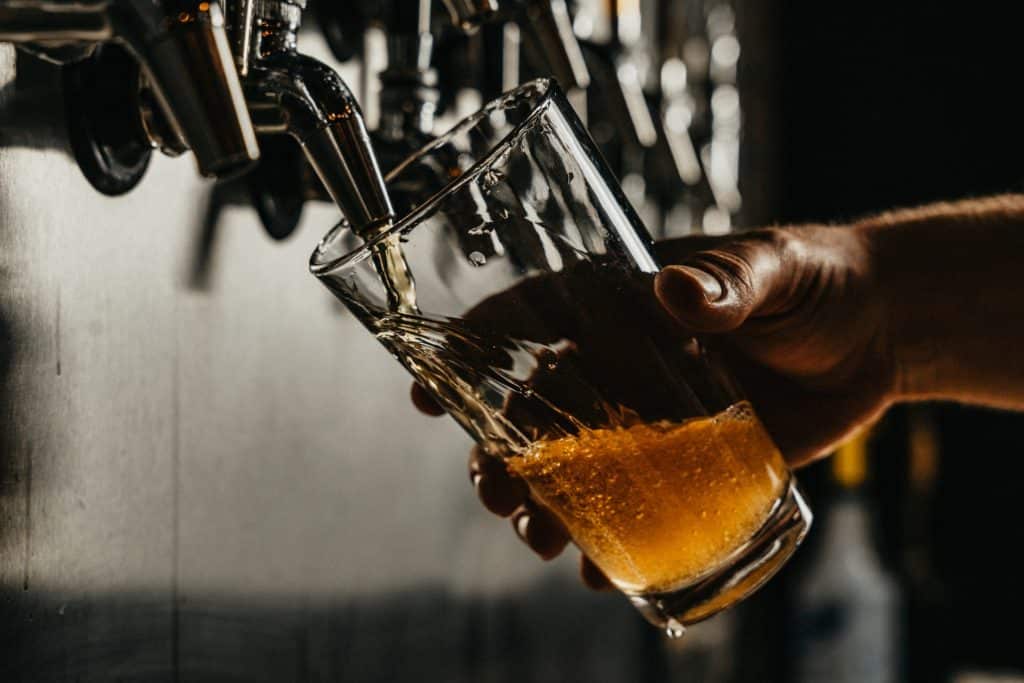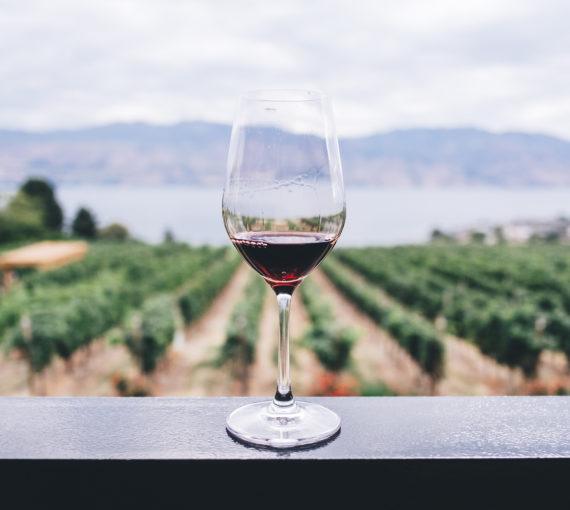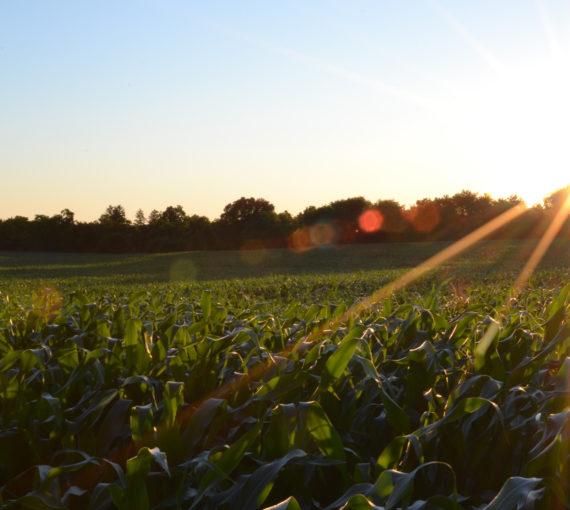
Beer is the most consumed alcohol in the world. If you’re going to drink, do it with nature in mind. Make informed choices. Learn more about organic, craft and carbon- neutral beer. (Photo: Josh Olalde via Unsplash)
Savour the flavour of beer crafted with nature in mind
Beer is the fifth most consumed beverage in the world and the most consumed alcoholic beverage. While many believe that beer production arrived with European settlers to what we know now as North America, evidence suggests Indigenous groups were making fermented beer-like beverages here long before.
So, what impact does beer have on the planet?
Environmental cost of beer
The most significant environmental issues associated with the global operation and production of beer are:
Water consumption
The brewing industry is one of the largest industrial users of water. It’s the largest single raw material used during the brewery process. Depending on their size, breweries use an average volume of 11 to 15 million litres (three to four million gallons) per year for cleaning, steam production, malting and cooling. Traditionally, it takes an average of three to seven barrels of water just to make a single barrel of beer.
Energy consumption
Of brewing’s major steps (malting, mashing, lautering, boiling, fermenting, conditioning and cooling), boiling, fermenting and cooling are energy-intensive. This energy is usually generated from fossil fuels — coal, natural gas or oil — leading to enormous carbon emissions depending on the size of the brewery. Transportation of the finished products also requires energy and, depending on the distance of travel, can significantly increase a six-pack’s carbon footprint.
Waste and water pollution
Beer production generates a large amount of waste, including spent grains, hops, diatomaceous earth and packaging materials. If not properly managed and disposed of, these can contribute to soil degradation and water pollution. Water used for cleaning operations results in waste water containing biological contaminants that, when discharged, can lead to water pollution and harm aquatic life and ecosystems.
Many academics and experts have proposed techniques for sustainable brewery processes that won’t compromise the quality of the products, including waste reduction, gaseous emission reduction, energy efficiency improvement and energy auditing.

Wines explained
You don’t have to be a master, sommelier or connoisseur. Just know that traditional winemaking methods are often best — for product quality and the environment.
The evolution of “green beer”
“Green beer” used to describe beer artificially coloured for celebrating St. Patrick’s Day. But it’s come to mean more as brewers and breweries have started to take an eco-conscious approach to what and how they produce.
What’s organic beer?
Organic beer is made with ingredients grown without synthetic pesticides or toxic fertilizers. Organic agriculture helps conserve natural resources, and reduce chemical runoff that can contaminate water sources and the ecosystems they support. And organic brewers support organic farmers!
Organic, less-processed beer often has a flavour distinct from traditional beer.
Canada’s first certified organic beer company, Mill Street, opened in 2002 and has expanded to include not only what’s going into its beer but also its brewing and packaging processes.
Many large commercial organic beer producers still use large-scale energy and water-intensive brewing practices. Opt for locally produced organic beer.
Bonus: Organic beer isn’t just better for the environment. If you’re going to drink alcohol, it’s healthier. Studies show that consuming foods and beverages made with organic ingredients can help reduce your exposure to harmful toxins and chemicals.
Understanding organic beer labels
“Made with organic ingredients” Only 70 per cent of ingredients have to be organic to make this claim. This beer might contain a mix of organic and non-organic forms of the same ingredients.
“Organic” Only 95 per cent of the ingredients have to be organic for this label.
“100% organic” This implies all ingredients are 100 per cent organic. It also indicates that all elements used in the processing of the beer are organic.
What’s craft beer?
Made in traditional or non-mechanized way by small breweries, craft beers are often not filtered or pasteurized. They contain more healthy compounds but have a reduced shelf life.
In the early days of beer production in Canada, whatever was on the market would have been defined as “craft” beer. In 1786, John Molson established the first commercial brewery in Montreal — still the oldest in North America. Craft brewing had a resurgence during Prohibition and the Great Depression, but largely slowed down in the early 1900s with industry consolidation, resulting in larger companies and a competitive industry.
Now craft beer is the fastest-growing segment of Canada’s beer market. A 2021 industry report said most of Canada’s breweries are small, local operations, with 94 per cent producing less than 15,000 hectolitres of beer. Modern craft beer provides new and tailored taste options.
Note: Not all craft beers are organic, and not all organic beers are craft. The best option is to opt for locally produced organic beer.
What’s carbon-neutral or carbon-negative beer?
For a company or product to be classified as carbon neutral there must be a balance between emitting carbon and absorbing carbon from the atmosphere through carbon offsetting.
BUT we live in the “golden age of greenwashing” and carbon offsetting has become the most popular and sophisticated form.
To be classified as carbon negative, more greenhouse gases have to be removed from the atmosphere than produced. For a product or company to be classified as zero carbon or net-zero emissions, no carbon emissions are released and no offsets are needed.
Carbon-neutral and carbon-negative breweries and beers are growing worldwide. Two in Canada claim to be the “first” in this category of sustainable beer practices.
Canada’s first carbon-negative brewery opened in Toronto in 2021. Karbon Brewing Co. source all their ingredients locally, use 100 per cent Ontario hops and are spearheading a circular economy brewing system for spent grain. They’re classified as Scope 1 carbon negative, meaning they’re offsetting emissions the company creates. To become Scope 3 carbon negative, they’ll have to also offset indirect (upstream and downstream) emissions linked to the company’s operations.
Beau’s Brewing Co.’s Local Organic ale is the first beer in Canada to be both certified organic and certified carbon neutral. They use 100 per cent Ontario hops and 100 per cent Quebec malts and brew their beer with green electricity.
The impacts of climate change on beer
Climate change has and will continue to affect beer production. A 2018 study published in Nature Plants said the global beer supply is vulnerable to dramatic shortages and increased prices due to climate change and climate-related weather extremes.
What are the main challenges climate change pose to beer?
- Extreme temperature changes throughout the year are affecting the yield and quality of barley and wheat.
- The price of beer is increasing globally due to hops shortages.
- The taste of beer is changing due to fungal and bacterial pests that are becoming more present in warming climates where hops grow.
- Severe drought and water scarcity are affecting agriculture and production processes.
Ask tough questions
Research. Make choices that consider the environment. Find out how your favourite brewers protect, maintain or enhance air, water, soil and ecosystems.


